How I Survived A Massive Heart Attack

The first sign of trouble began at 4:30am. On January 23, 2018 I woke to a feeling of intense pressure and a burning pain. The night before, I’d brushed off a general sense of soreness as the result of a tough workout. Little did I know that soreness was a warning sign I would be in a fight for my life.
Even as the pain and the pressure intensified, it was hard to believe that it was a heart attack. I had just had a complete physical nine months ago, where my cholesterol was in the normal range and my blood pressure was normal.
I was also in great shape, ate healthy foods, worked out regularly, and drank superfood smoothies. It turns out that lifestyle may have saved my life.
A Family History Finally Figured Out
I couldn’t have known that my heart had been at risk my whole life. All I knew was that my father’s side of the family had been plagued by heart attacks.
Lying in the cardiac intensive care unit (CICU) after having emergency surgery to have two stents placed, I learned for the first time what was behind our family history of heart disease: high levels of Lipoprotein(a) or Lp(a).
Just like how having the BRCA gene mutation creates a high risk for breast cancer in women, having genetically high levels of Lipoprotein(a) dramatically increases the risk for heart disease.
Finally, our family history made sense.
My grandfather had died of a heart attack at age 67, my father died at 63 from a heart attack, and all three of his brothers had died young from heart attacks. They all had inherited high levels of Lipoprotein(a).
Lipoprotein(a) is a Silent Killer
I consider myself well informed when it comes to my health, but before my heart attack I had never even heard about Lp(a).
Yet having genetically high levels of Lipoprotein(a) is surprisingly common. Last year, The Biggest Loser fitness trainer Bob Harper appeared on Dr. Oz to share that his massive heart attack was caused by Lp(a).
According to the Lipoprotein A Foundation, as many as one in five people have elevated Lp(a) and most don’t know it.
While there is a test, it’s not standard, and isn’t included with a physical exam, which is why my results seemed fine just months earlier.
If you have a family history of heart disease, ask your doctor to test you for Lipoprotein(a). If you do have high levels, start taking steps to improve your lifestyle, as your life may depend on it.
A Healthy Lifestyle Can Save Lives
There are no medical treatments for high levels of Lipoprotein(a). That means eating healthy foods and getting exercise is vital.
When I arrived in the ER, I actually walked in, and was awake while they performed an EKG. I heard them call me as a Code Blue because one of my arteries was 100% blocked, and a second one was 80% blocked.
The next day, the cardiologist was telling me how surprised he was that my artery hadn’t ruptured. Usually with a 100% blockage they blow, which increases the odds of dying.
Both the cardiologist and nurse attributed my healthy lifestyle as a big factor in how I was able to survive a massive heart attack.
My Path to Recovery
I survived my heart attack without open heart surgery, having two stents placed to keep my arteries open. But still, my heart was damaged, and is functioning at about 45% of its capacity.
Like any muscle that is injured, it will take time to heal.
Initially, my cardiologist advised staying off all nutritional supplements. But I consider the organic whole food supplements I take as essential to health. So, I asked the doc to look over the labels of what I take.
When he came back he told me he was impressed, and that not only should I continue taking them but that I should probably increase my intake!
He went on to explain that most supplements have synthetic vitamins which interact with medication, but that organic whole foods don’t have this issue and would greatly benefit my body.
Now my doctor’s orders include a daily smoothie with Super Green Juice, extra greens and vitamin D in Supergreens +D and heart-healthy omegas in Wellspring as part of my recovery.
Not only will organic whole foods support my overall recovery, greens are also a source of healthy nitrates that help to boost nitric oxide production, which is good for the heart.
Living a healthy lifestyle was a promise I made to my son after my father died, and now it’s more important than ever. In sharing my story, I want to raise awareness about the risks of genetic Lp(a), and to let others know there is hope to not just survive, but to thrive.
By Alan Newell

